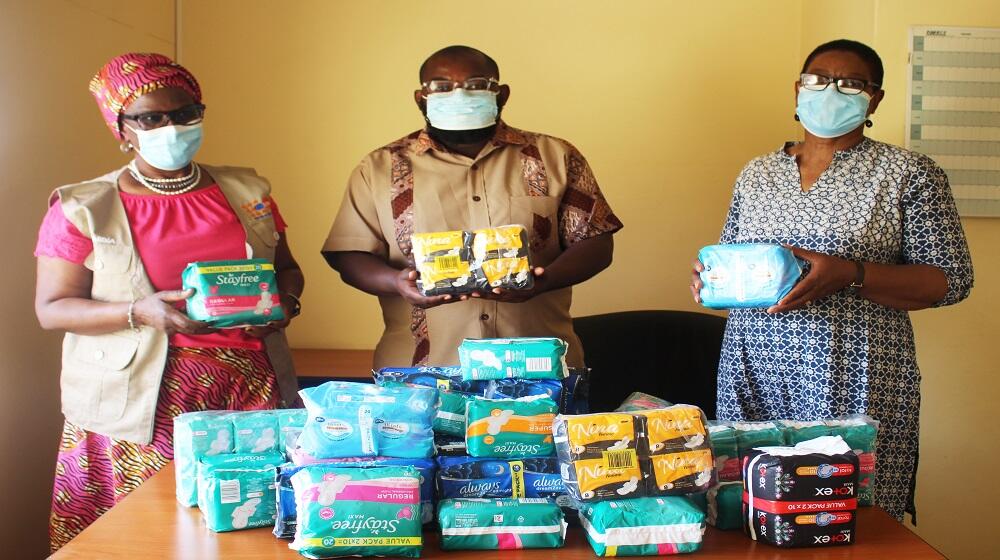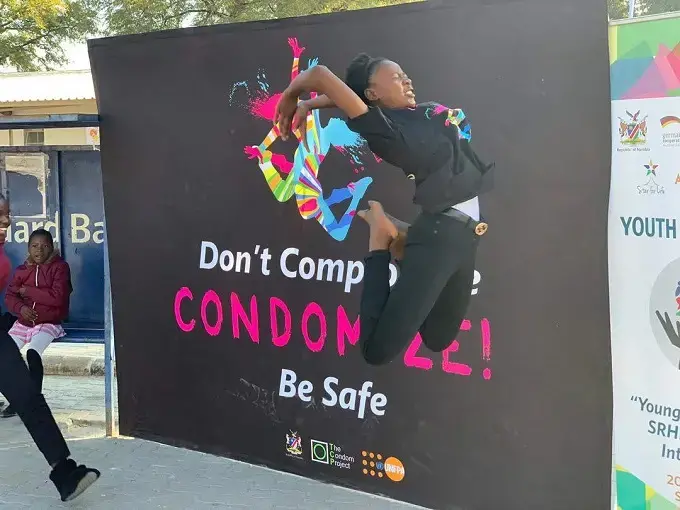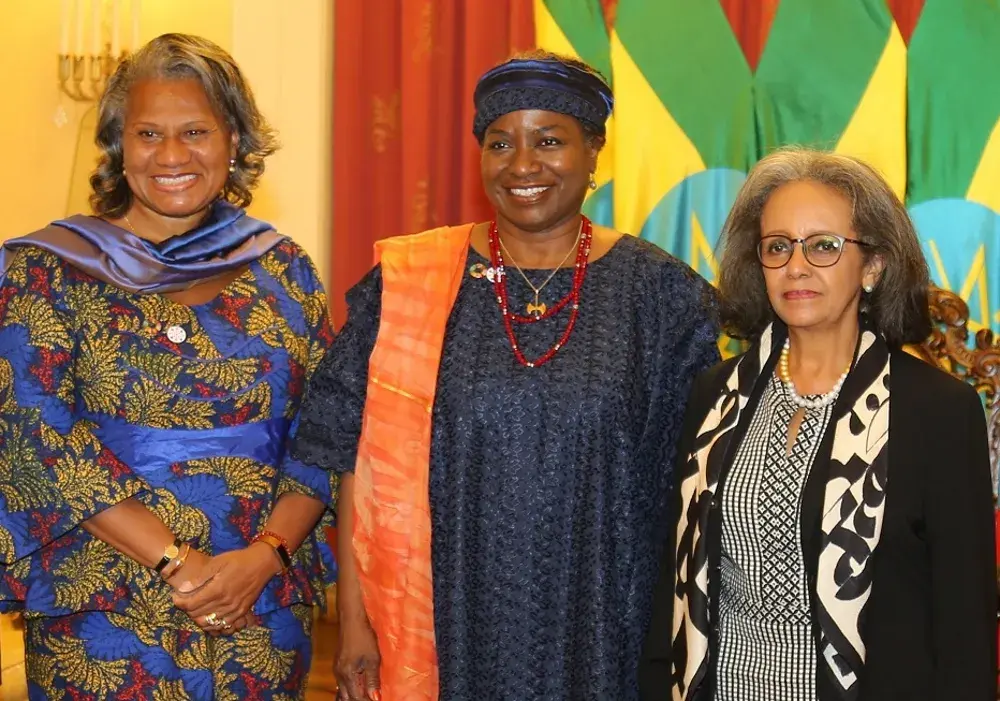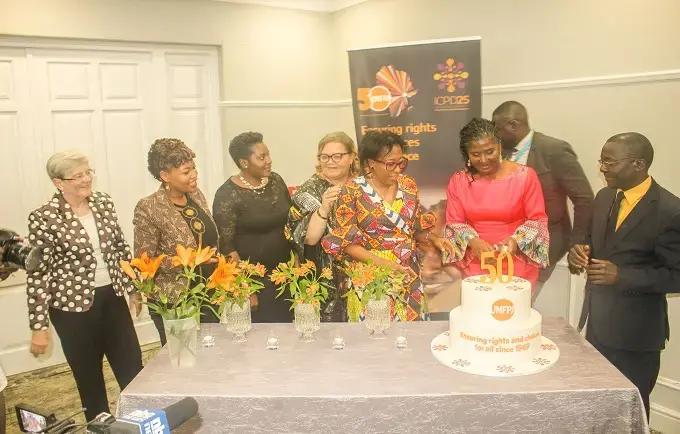OPUWO, Kunene ̶ In a fact-finding mission that sought out solutions to problems faced in the Kunene Region, Representatives of the United Nations Population Fund (UNFPA), Sheila Roseau and United Nations Children's Fund (UNICEF), Rachel Odede paid a courtesy call to the Governor of Kunene Region, Hon. Marius Sheya recently.
They discussed the challenges that the region is facing, brainstormed current solutions to address them and how UNFPA and UNICEF can get on board to assist. The two UN agencies came prepared and handed over sanitary pads on behalf of UN Namibia.
Breaking taboos
Governor Sheya has a box that is neatly covered with white and pink fabric. On top of the box is written: ‘Donate a Pad to Keep Girls in School’. However, to the multitudes of men who still view it as taboo to talk about women's menstrual cycle, they find it strange that he has a box in his office.
"Why would a man have a box of pads in his office?" This is a frequently asked question due to issues relating exclusively to patriarchy. But for him as a father of three girls, there is nothing out of the norm as he can relate.
Previously, the Governor visited a school and upon arrival, found girls in the hostel (in their rooms) and not attending school because they were menstruating and did not have sanitary pads.
At another school hostel, Hon. Sheya further observed pieces of mattress material on the ground. This was a shocker to him and when he asked the teacher why pieces of matrasses where all over the place, he was told the girls had been using them as make-shift sanitary pads.
These would subsequently be thrown out of the window after use - a practice that shies away from good hygiene.
A girl needs to be confident about herself and her body especially when she is in the class.
Transforming lives
"So, we have been dispatching pads to the schools in the areas in need of pads. Having a pad is beyond the price, it is about dignity,” said Hon. Sheya.
He added that “A girl needs to be confident about herself and her body especially when she is in the class.”
It has been estimated that one in 10 girls in Namibia will miss school when they have their periods. A 2020 study on knowledge, practices and challenges on menstrual health and hygiene in Namibia report only 17% of girls living in rural areas have access to improved sanitary services.
The study found that only 29% of schools have flush toilets, over a quarter of girls (28%) use toilet facilities that were not separated from those of the boys and over half of schools (51 %) make no provision for girls in relation to menstruation such as handwashing stations with soap and water and rubbish bin inside toilet for safe disposal of pads.
What UNFPA is doing to support government?
“The aim of UNFPA is to reach those furthest behind first. We focus on girls and women because these are the groups whose rights often go unfulfilled,” said UNFPA Representative, Roseau.
She said UNFPA reaches women and girls directly with menstrual supplies during humanitarian emergencies. During the drought and now COVID-19 emergency, UNFPA distributed dignity kits, which contained disposable menstrual pads, underwear, soap and related items to vulnerable women and girls,” she stressed.
In addition, UNFPA and UNICEF jointly supported the Government of Namibia to conduct a baseline study on knowledge, practices and challenges on menstrual health and hygiene in Namibia as well as incorporate menstrual health management in the new Integrated School Health Policy.
UNFPA Namibia’s work on menstrual health is done as part of the Safeguard Young People Programme, funded by the Swiss Agency for Development and Cooperation, that is scaling up interventions touching on policy, integrated HIV and youth-friendly sexual and reproductive health services, sexuality education for in- and out-of-school youth as well as youth empowerment in Southern Africa.





